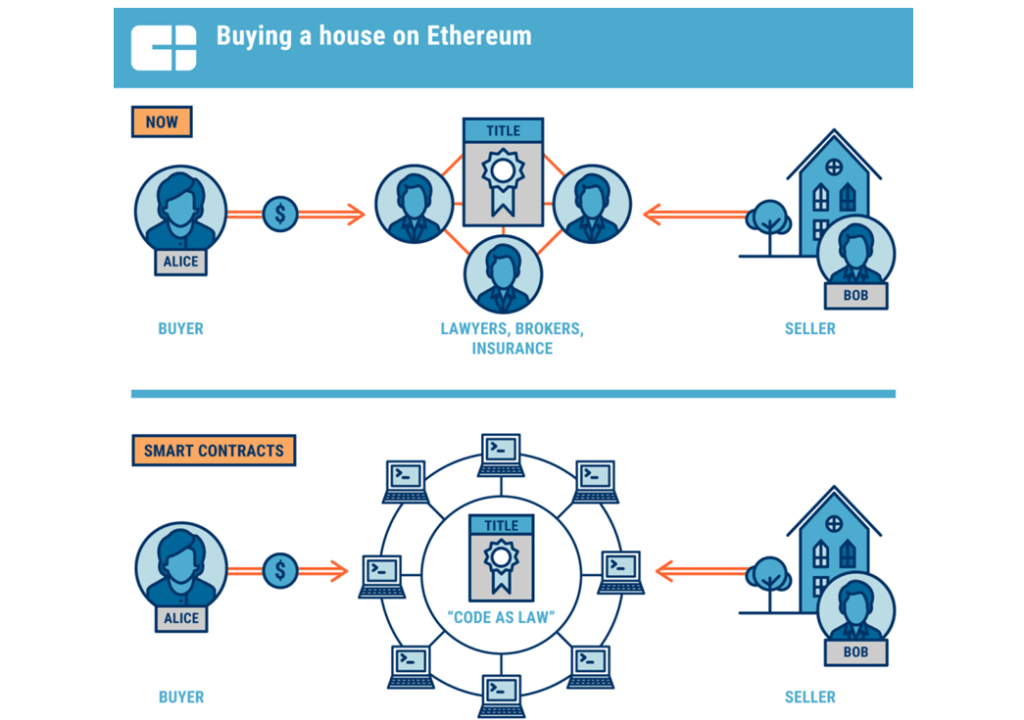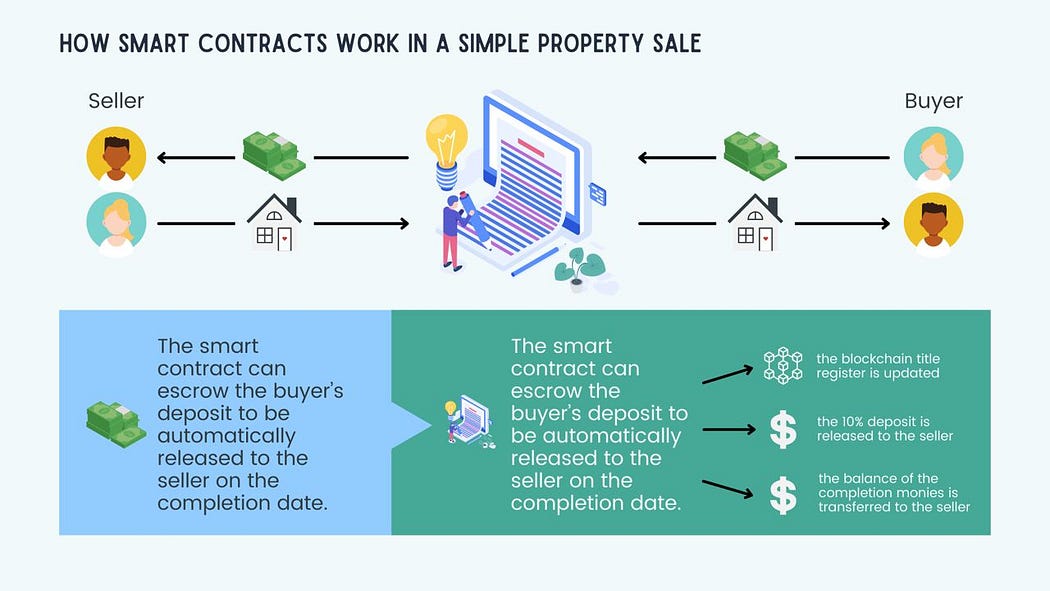SERVICES BY US
Real estate & Blockchain
blockchain can be useful in real estate:
- Smart Contracts: In a traditional real estate transaction, intermediaries such as real estate agents, title companies, and banks are involved in the process. These intermediaries can increase the time and cost of the transaction, as well as the potential for errors or disputes. By using smart contracts on a blockchain platform, real estate transactions can be executed automatically without the need for intermediaries. The smart contract can be programmed to release funds and transfer ownership of the property once certain conditions are met, such as the completion of a home inspection or the transfer of funds.

- Increased Transparency: Blockchain technology can enable a shared database of information that is accessible to all parties involved in a real estate transaction. This can include information such as property records, inspection reports, and financing information. By providing a transparent and tamper-proof record of all transactions, blockchain can reduce the potential for fraud and errors. Additionally, it can make the transaction process more efficient by reducing the need for parties to verify information independently.
- Fractional Ownership: Blockchain technology can enable the creation of digital assets that represent fractional ownership of a property. This can allow multiple investors to contribute to the purchase of a property and share in its value, without having to purchase the property outright. Fractional ownership can make it easier for individuals to invest in real estate, particularly in expensive markets where the cost of purchasing a property outright may be prohibitive.
- Property Title Management: Blockchain technology can be used to create a decentralized ledger of property titles that is accessible to all parties involved in a real estate transaction. By using blockchain to manage property titles, it can be easier to transfer ownership of a property and reduce the potential for disputes or fraud. Additionally, it can make it easier for investors to purchase and sell fractional ownership of a property, as the ownership information can be easily verified.
- Increased Efficiency: By reducing the need for intermediaries and streamlining the real estate transaction process, blockchain technology can help to increase the efficiency of the real estate industry. This can save time and reduce costs for all parties involved in a transaction. For example, by automating the transfer of funds and ownership, blockchain can reduce the time required to complete a real estate transaction from weeks to hours.
Overall, blockchain technology has the potential to bring significant benefits to the real estate industry, including increased transparency, efficiency, and accessibility. By using blockchain to automate and streamline real estate transactions, the industry can become more accessible to a wider range of investors and more efficient for all parties involved.

Few blockchain case studies for Real estate:
- Propy: Propy is a blockchain-based real estate platform that allows buyers, sellers, and agents to complete real estate transactions entirely online. The platform uses smart contracts to automate the transaction process, eliminating the need for intermediaries such as title companies and escrow agents. Propy has successfully facilitated the sale of several properties using blockchain technology, including a $60,000 apartment in Ukraine and a $1.6 million property in California.
- Deedcoin: Deedcoin is a blockchain-based platform that allows real estate agents to offer discounted commissions to buyers and sellers in exchange for using the platform’s token. The platform uses blockchain technology to create a decentralized database of real estate information, which can be accessed by buyers, sellers, and agents. Deedcoin has successfully completed several real estate transactions using blockchain technology, including the sale of a $1.8 million property in New York City.
- Harbor: Harbor is a blockchain-based platform that allows investors to purchase shares in real estate assets using cryptocurrency. The platform uses smart contracts to automate the investment process, eliminating the need for intermediaries such as brokers and banks. Harbor has successfully completed several real estate investments using blockchain technology, including a $22 million investment in a student housing property in South Carolina.
- Ubitquity: Ubitquity is a blockchain-based platform that offers title and real estate record management services. The platform uses blockchain technology to create a decentralized database of property records, which can be accessed by buyers, sellers, and title companies. Ubitquity has successfully completed several real estate transactions using blockchain technology, including the sale of a $500,000 property in Ohio.
These case studies demonstrate how blockchain technology can be useful in real estate by increasing transparency, efficiency, and accessibility. By using blockchain to automate and streamline real estate transactions, the industry can become more accessible to a wider range of investors and more efficient for all parties involved.
Services categories
About us

Our goal is to help our clients achieve their online goals by providing them with customized, effective, and results-driven solutions that drive growth, increase visibility, and strengthen their online presence.
Contact info
Address office
USA, INDIA, VIETNAM
Phone